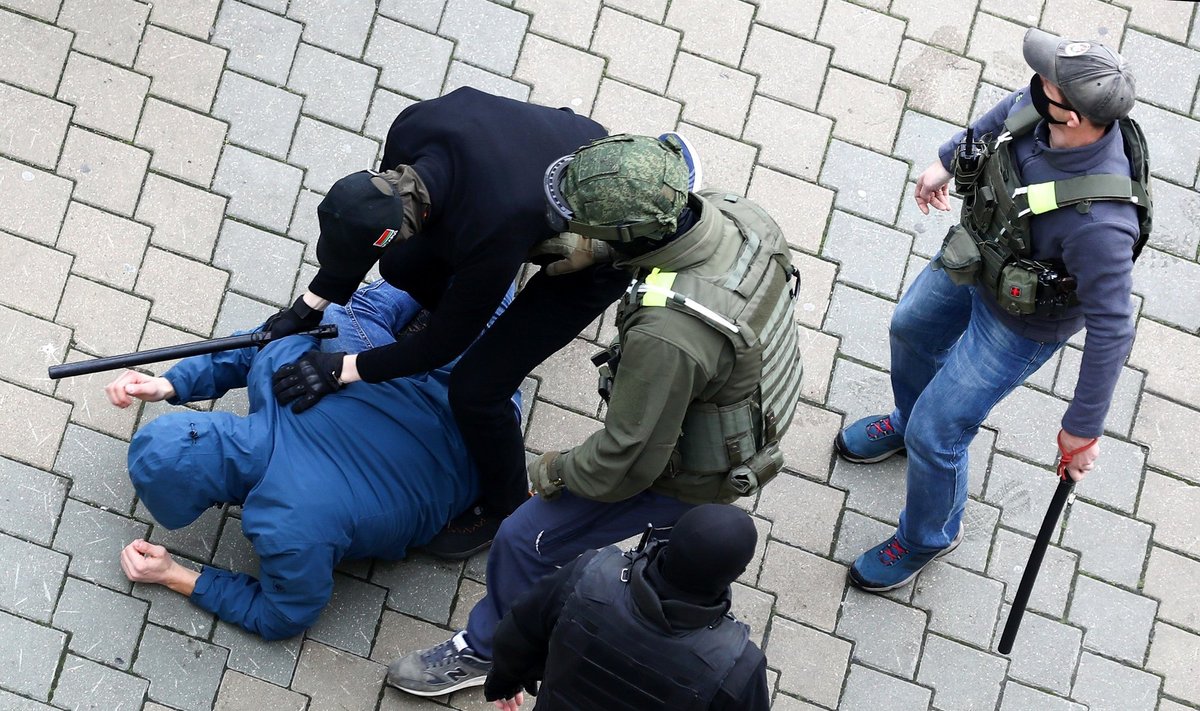"The claimant's stated circumstances of the event and other initial data presented to the prosecution service have been assessed as having signs of a crime under universal jurisdiction under the Criminal Code of the Republic of Lithuania," the prosecution service said in a statement.
According to the prosecution service, universal jurisdiction means that criminal liability for crimes defined by international treaties applies irrespective of the citizenship of victims or suspects, the place of the offence and whether the country where the offence was committed punishes it by law.
Crimes that might be subject to universal jurisdiction also include torture as one of the crimes against humanity.
Lithuania's outgoing Prosecutor General Evaldas Pasilis, who made the decision to launch the pre-trial investigation, underlined that all people, irrespective of their citizenship, have equal rights and can receive other states' assistance if their rights were violated.
"The international community unanimously agrees on the need for universal jurisdiction and its importance for defending fundamental human rights and stopping and preventing serious international crimes, but such cases, nevertheless, are rare and raise many legal questions. Therefore, I understand that this pre-trial investigation will be very complicated, closely watched, and truly nobody can say today when and how it will end," he said.
According to Pasilis, in this case the prosecution service had the only right decision "to use legal ways to collect and properly record as many documents having the value of evidence, necessary for a judicial process, whenever and wherever it will be held".
To prove the crime during the pre-trial investigation, evidence will have to be collected that torture was carried out on behalf of the state, the prosecution service said.
It is not ruled out that information on other victims might also be collected during the investigation.
Currently residing in Lithuania, the Belarusian citizen turned to the prosecution service on November 30 over violence he was subjected in Minsk on October 13.
Khoroshin told a press conference in Vilnius in late November that he used to attend protests in Belarus with his wife. One day, three vehicles with 12 masked men arrived at his home and took him away. The Belarusian said he learnt from the officers that he had been under surveillance.
He said the officers accused him of taking part in an opposition rally and used bats and fists to beat him and that he lost consciousness several times.
Khoroshin told the press conference in Vilnius that he's still being persecuted and receives threatening calls.
In his statement to Lithuania's law enforcement, Khoroshin said the man who beat him looked similar to Nikolay Karpenkov, the head of GUBOPIK (the Belarusian Interior Ministry's Main Directorate for Combating Organized Crime and Corruption).
Alexander Dobrovolsky, a representative of Belarusian opposition leader Svetlana Tikhanovskaya's headquarters, who also attended the press conference, said statements including similar accusations from other victims of the Belarusian regime would be filed with law enforcement institutions in other countries, and added that a coordination center for this task was being established in Vilnius.
The pre-trial investigation is being controlled by the Prosecutor General's Office's Department for Criminal Prosecution, and the investigation is being carried out by officers from the Lithuanian Criminal Police Bureau.
Under the Criminal Code of Lithuania, a person who intentionally, by carrying out or supporting the policy of the state, in any way tortures another person or subjects another person to very cruel treatment, thus inflicting serious physical or psychological pain or great suffering might be punished by a custodial sentence for a term of five up to twenty years or by a life custodial sentence.
Defendants can be trialed in absentia if they go into hiding.
